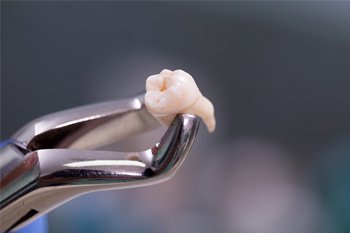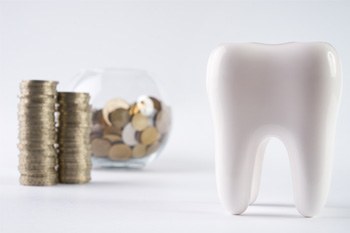Teeth Extraction
We Offer In-Office Extractions
Your teeth are meant to last for a lifetime with the right care because each tooth is invaluable to your oral health and functions. Unfortunately, there are times when an extraction is in your best interest, such as in cases of significant damage. If you need to have a tooth removed, you don’t need to visit an unfamiliar dental practice. We perform teeth extraction right here in our office. Diamond Hill Dental will safely remove your tooth while keeping your comfort a top priority.
Do I Need to Have a Tooth Removed?

Millions of teeth are extracted every year. Although it’s common, we only suggest it as a last resort. The decision to remove a tooth is not one that’s made lightly. We take the time to evaluate your oral health to determine if there are any other options. We may recommend one if:
- You have extra teeth.
- Your baby teeth have not fallen out.
- You are preparing for orthodontics.
- A tooth has significant decay or damage.
- A tooth is a source of infection.
- You have wisdom teeth complications
How are Teeth Extracted?

After examining your tooth, your dentist determines which extraction method you need. There are two techniques for removal:
- Simple Extraction: If a tooth is fully visible above the surface of the gum, a simple extraction is used. You’re given a local anesthetic or a sedative, so you don’t feel any pain as your tooth is loosed from its supporting structures using a dental instrument called an elevator. Then, your tooth is grabbed with forceps and removed.
- Surgical Extraction: If the tooth cannot be fully seen above the gum tissue, a surgical extraction is needed. Typically, it’s required with a partial or full impaction. Sedation or anesthesia is used to ensure your comfort as your gum tissue is opened to expose the tooth. In some cases, you may need to have some bone or tissue removed to gain complete access to the tooth. It’s then broken into smaller pieces and carefully taken out. Your gum is sutured closed, so you can begin the healing process.
How Long is the Recovery?

If you’ve had a surgical extraction, the recovery process may take a couple of days longer. No matter the method used to remove your tooth, follow your go-home instructions carefully. Take any prescribed medications as recommended. Apply a cold compress to the outside of your face in 10-minute intervals to manage any swelling. It’s normal to see some bruising.
As you heal, it’s important to maintain your oral hygiene, but be careful when cleaning around the extraction site. Do not rinse your mouth aggressively or it can disrupt the blood clot. It’s also best to stick to a soft diet for a few days. To prevent a painful condition called dry socket, don’t smoke or drink through a straw.
If you have any concerns after your extraction, please don’t hesitate to call our office.
If you need to have a tooth removed, we can help. Contact our office today to schedule your consultation.
Understanding the Cost of Tooth Extractions

When you're scheduled for a tooth extraction, the last thing that you want is to have to stress about the cost of your care. That's why we do everything thing in our power to make our care not only affordable, but to make payment itself as easy as possible.
We'll be happy to talk to you in great detail about what you can expect to pay for tooth extractions when we meet you in person, but until then here's what you should know about the cost of this treatment.
Factors that Affect Tooth Extraction Cost

It's not necessarily possible to say exactly what your tooth extraction is going to cost without meeting you first, as the price of your treatment will depend on a few factors. For example:
- The number of teeth that you're having removed.
- Where the teeth are located in your mouth, and what kind of teeth they are.
- The complexity of the extraction. In some circumstances, an external specialist with their own rates may need to be brought in to complete the procedure.
- What you'll use to replace the tooth that you've lost.
We'll talk to you in detail about each of these options and what they can mean for you when we meet you in person.
Does Dental Insurance Cover Tooth Extractions?

Tooth extractions done for important medical reasons are almost always covered by dental insurance. While the details vary from plan to plan, most of them will cover around 50% of the total cost of your tooth removal. Of course, this varies depending on the nature of plan, so it’s worth consulting with your insurance company before pursuing care.
How to Make Tooth Extractions More Affordable

That said, we hope to provide necessary care to all of our patients, not just those that have insurance. For that reason, we offer options that can potentially make care more affordable. If you’re intimidated by the prospect of paying for your care all at once, we offer payment plans to our patients that can allow them to split the cost of care into manageable chunks. If you have any questions about how you can make your tooth extraction fit your budget, give us a call and we’ll be happy to help you.
Tooth Extractions FAQs
Does Getting a Tooth Extracted Hurt?
Let’s start with one of the most popular questions about tooth extractions, “Do they hurt?” You’ll be happy to hear that the very first step of the entire treatment process is always the same: numbing the area of your mouth that we will be working on. As a result, you won’t feel any pain during your time in the treatment chair. Of course, once the numbing agent starts to wear off (which won’t be until a few hours after you return home), some soreness will begin to surface. At this point, it’s a good idea to take OTC pain medication as directed. Make sure to follow the other aftercare instructions as well, including using a cold compress for 10 minutes at a time.
How Should I Prepare for My Tooth Extraction?
Prior to your tooth extraction, there are a few things you should do. The first is to bring any questions you have to our team, including if/what you can eat the morning of your appointment. The second is to go to the store to grab anything you’ll need during the recovery period, including OTC pain medication, cold compresses, and soft foods. Finally, arrange for someone you trust to drive you home from your appointment.
Can I Leave the Space Empty After a Tooth Extraction?
That depends largely on the reason for your tooth extraction! If you had the tooth removed prior to your orthodontic treatment because of overcrowding, then you can absolutely leave the space empty. If, on the other hand, the tooth was removed because it was badly decayed or damaged, then you will need to have it replaced. At our office, we offer three tooth-replacement solutions: dental bridges, dentures, and dental implants. We’ll review the pros of each at your appointment, share our recommendations, and answer any questions you have to help you decide which one is best for you.
Can I Smoke After Getting a Tooth Extracted?
No, you should not smoke for two weeks prior to the procedure and at least five days afterward. This is crucial because tobacco products can lead to numerous complications, including delayed healing. So, steer clear of them entirely, and quit altogether if possible!
What’s the Difference Between Tooth Extractions and Wisdom Tooth Surgery?
The main difference between a tooth extraction and wisdom tooth surgery is that the latter is specifically for the third set of molars that make an appearance between the ages of 16 and 25. Tooth extractions, on the other hand, are used to remove any teeth that are decayed, damaged, or causing other problems, like overcrowding.
Note: If you’re curious to learn more about the differences between the two procedures, including why we recommend the one that we do for you, don’t hesitate to get in touch!
